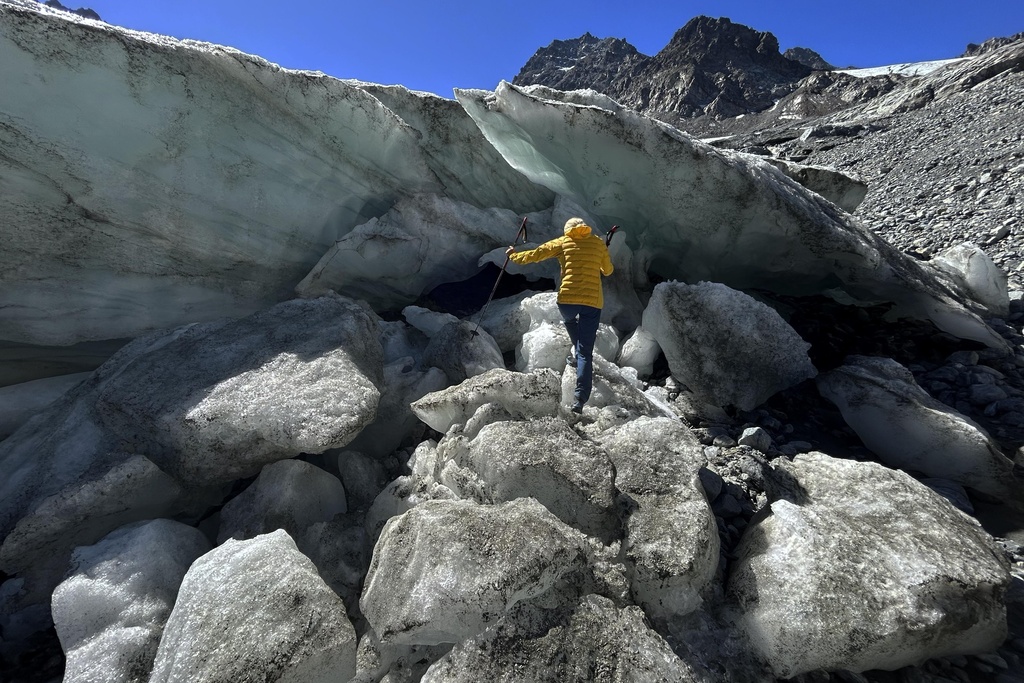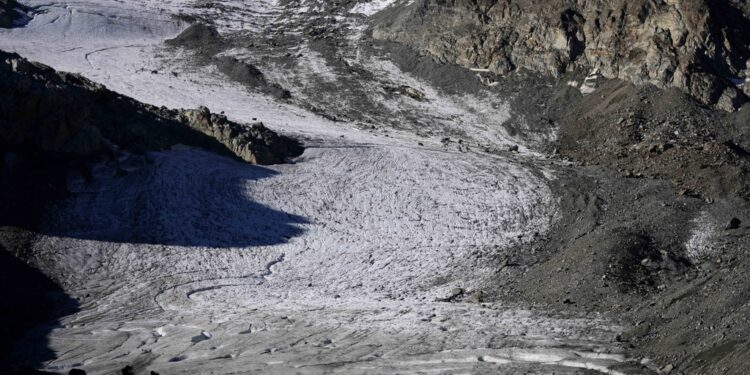The biggest retreat was that of the biggest glacier in Austria—the Pasterze, in the Glockner mountain group in the southern province of Carinthia—which shrank by 203.5 metres (668 feet), a record for that glacier.
Gerhard Lieb, the co-leader of the club’s glacier measurement service, said glaciers in Austria can no longer be saved and their disappearance in the coming decades is “unstoppable”.
The process of forming snow reserves at the upper ends of glaciers so that they can stabilize takes decades “and the time is up”, he added. “That means nothing can be done anymore.”

“There might be some remnants in shadowed locations—maybe at the Glockner glacier on the north-east side, some areas in the Oetztal valley,” said the service’s other co-leader, Andreas Kellerer-Pirklbauer. “But de facto, in 40 to 45 years all of Austria will be pretty much ice-free.”
The experts, both of whom work at the University of Graz’s geography institute, said that the continued existence of Austria’s glaciers is down entirely to ice reserves from the past.
 Glaciologist Andrea Fischer from the Austrian Academy of Sciences climbs up at the Jamtalferner Glacier near Galtuer, Austria, on September 6, 2023. (AP Photo/Matthias Schrader, File)
Glaciologist Andrea Fischer from the Austrian Academy of Sciences climbs up at the Jamtalferner Glacier near Galtuer, Austria, on September 6, 2023. (AP Photo/Matthias Schrader, File)
Kellerer-Pirklbauer said that “a late but very long and warm melting period in 2023” was the main culprit in the latest numbers.
Last year’s average figure for glacier retreat fell short of the record set in 2021-2022 of 28.7 metres (94.2 feet). But no glacier receded by more than 100 metres that year, and two did in the latest report: Alongside the Pasterze, Tyrol province’s Rettenbachferner glacier was 127 metres (416.7 feet) shorter. Only one glacier, the Baerenkopfkees in the Glockner group, was unchanged in length last year.
Glaciers are masses of ice that form as snow and ice compact over centuries and then flow slowly over land. Their melting is one of the most notable indications of human-caused climate change, with glaciers around the world rapidly retreating.
Experts in neighboring Switzerland said in September that that country saw 4% of its total glacier volume disappear in 2023, the second-biggest decline in a single year on top of a 6% drop in 2022.
With inputs from AP
Source link : https://stratnewsglobal.com/world-news/austria-glaciers-melting-global-warming-climate-change-effect/
Author :
Publish date : 2024-04-05 07:00:00
Copyright for syndicated content belongs to the linked Source.


